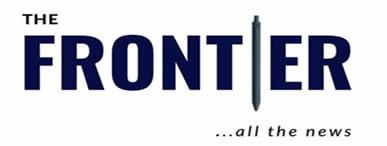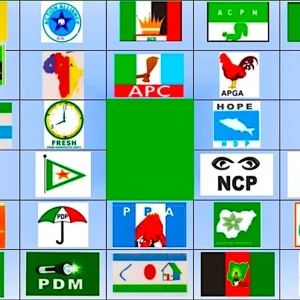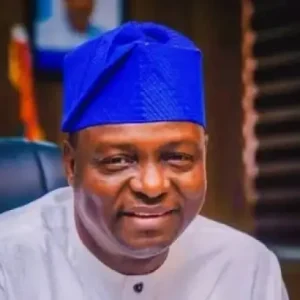•Hair braiding among Gen Z males
In recent years, the landscape of men’s fashion and grooming in Nigeria has seen a notable shift, with hair braiding emerging as a significant trend among young men.
Once seen as a style reserved for women, braided hairstyles are now redefining masculinity on the streets of Nigeria, reports NAN.
The practice has now evolved into a form of cultural expression, artistry and personal identity for some young men in the country.
This growing trend is not just about fashion; it challenges cultural stereotypes, sparks conversations about gender norms, and signals a broader shift in how young Nigerian men see themselves and their identities.
Speaking on the trend, contributors appraised several factors contributing to the drift among young men in the society.
Mr Chinemerem Ndinojue, a youth and fashion enthusiast, described hair as a deep personal expression of identity.
“To me, hair is an extension of one’s personality; in African history, braids were more than fashion — they were symbols of resistance, identity, and even communication during the era of slavery.”
Ndinojue argued that modern youths, particularly the Gen Z, use braids and other hairstyles to reflect creativity and stand out in industries like fashion and entertainment.
“Many of us are into music, design, content creation and our appearance is part of the brand; our parents rocked Afros in their time. It is the same expression in a different era; you cannot judge a person’s morality by their hairstyle,” he said.
However, Mr Michael Samson, a civil servant, sees the trend differently, describing it as a departure from African tradition and an influence of misguided westernisation.
“Our traditions have been replaced by modern civilisation; most of these boys are not celebrities; yet, they spend thousands on hair that serves no purpose. Worse still, some use these looks to cover fraudulent activities.’’
He cited an incident at a bank where a teenager, allegedly involved in internet fraud, claimed to have earned in a month what an older man earned in a lifetime.
“Such wealth without value is what leads to this arrogance; many use these styles to gain attention, not out of professionalism,” he said.
Echoing similar sentiments, Mrs Blessing John, another civil servant, said male hair braiding undermines cultural and moral standards.
“For me, it is not encouraging; we are Africans with strong cultural values; in our tradition, men do not braid their hair; even in professional spaces namely medicine, law, engineering, you do not see such hairstyles; there is a reason for that.”
She warned that many young men who braid their hair may be involved in societal ills such as drug abuse and cultism.
“We need value reorientation; parents must go back to teaching their children the right path; we must not forget where we come from,” she said.
Meanwhile, Mrs Ijeoma Azubuike-Okigbo, a communications professional, offered a more nuanced view.
While she admitted personal reservations about male braiding, she acknowledged the growing influence of pop culture.
“Young people today look up to personalities like VeryDarkMan among others who braid their hair and still command respect. If society begins to accept it widely, it might one day become a part of our evolving culture,” she said.
She said that many parents even took their young male children to salons for braids, suggesting the trend was already gaining ground across families.
“Ultimately, hair is natural; how one chooses to style it is personal; society is changing, and this may be part of that evolution,” she said.
Mr Toks Adesanya, a community elder, expressed strong disapproval over the rising trend of hair braiding and dreadlocks among young Nigerian males, describing the practice as a “taboo” and a deviation from cultural norms.
Adesanya lamented what he referred to as the erosion of African values and the shift in traditional masculinity.
He argued that hair braiding in men was not only alien to the culture but also reflective of a larger societal breakdown.
“It is a taboo for a man to braid his hair; when I see a boy or a man doing such things, I consider it a disgrace and a deviation from our tradition.
“Such hairstyles are not only culturally inappropriate but also expose young men to unnecessary suspicion by law enforcement.
“Thank God, the Special Anti-Robbery Squad of the Nigeria Police is no longer around; many young men would have fallen victim because such looks make them easy targets; police often associate such appearance with cybercrime or cultism.’’
Adesanya recalled a personal experience from his youth, when he briefly curled his hair to attend a party, only to be severely reprimanded by a family member.
“I felt accepted at the party, but when I got home, someone close to the family expressed deep disappointment; she said I had disgraced manhood; I felt ashamed and removed the curls the next day.”
He also attributed the trend to poor parenting, environmental influence, and a lack of religious and societal guidance.
“Our society no longer checks excesses; parents are absent, churches and mosques are silent, and this silence is taken as approval.
“Even in job interviews, appearances matter; a man with braids or dreadlocks may not be taken seriously if he should appear in such a manner for job interviews,” he said.
Recently, Governor Umar Bago of Niger banned the wearing of dreadlocks among other things due to the rise of insecurity in the state.
Bago ordered security agents to clamp down on thugs and those abetting them in disrupting public peace in Minna, the state capital where violence had become a daily occurrence.
He also directed the arrest of people wearing dreadlocks, following a series of calls by terrorised residents of Minna to curb the worsening thuggery that had claimed the lives of many innocent people.
The governor said that thugs had turned the streets of Minna into a battleground since he took over leadership of the state.
As the debate continues, the question remains, is male hair braiding in Nigeria a fading of traditional values or an embrace of modern self-expression?



























